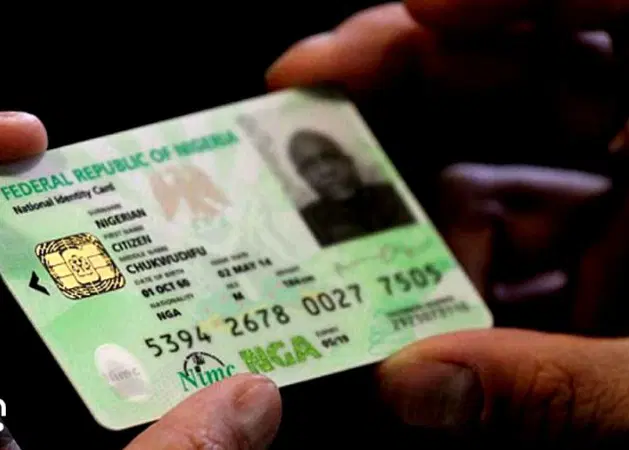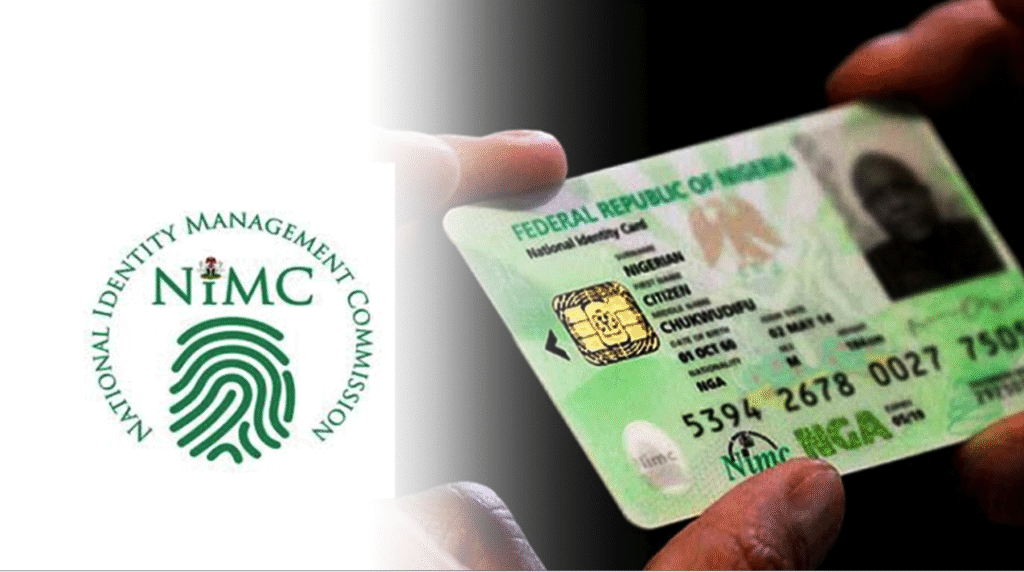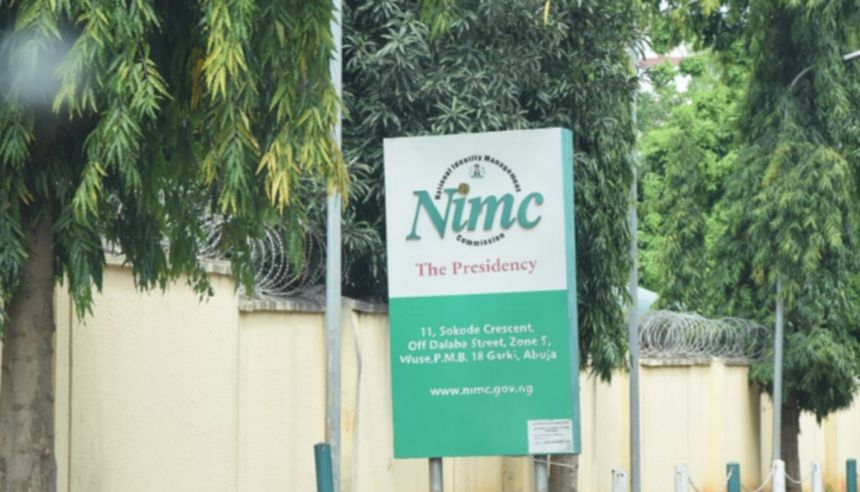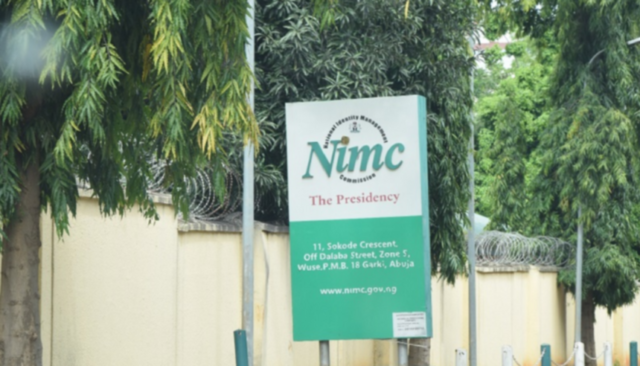In a landmark achievement, Nigeria’s National Identity Management Commission (NIMC) has officially registered over 120 million individuals with the National Identification Number (NIN), marking a pivotal moment for the country’s digital identity ambitions and its growing role in facilitating cross‑border integration.
Table of Contents

A New Chapter in Identity Infrastructure
Addressing a gathering of media partners in Abuja, NIMC Director‑General Engr. Abisoye‑Coker Odusote confirmed that the national database now exceeds 120 million active NIN registrations, a figure that underscores one of the fastest identity enrolment efforts in Africa.
Previously, NIMC had set its sights on enrolling 100 million citizens—but with accelerated outreach, especially in rural areas and Nigerian diaspora communities, that target has been significantly surpassed. According to reports, the database may have reached as high as 121.4–122 million by late June and early July 2025.
How the Numbers Were Built: Strategy, Innovation, and Expansion
Under Odusote’s stewardship, NIMC implemented an aggressive expansion plan that included:
- The deployment of over 800 mobile enrolment units, enabling registration access even in remote communities and during outreach drives.
- Partnerships with private agents through a program known as Frontier Partners, where vetted private-sector agents joined NIMC to scale enrollments nationwide, including in underserved areas.
- Streamlining of processes via online pre-enrolment and modification tools, reducing queuing, minimising manual errors, and enabling people to update their NIN data using secure self-service platforms.
These reforms coincided with a significant 40 percent reduction in extortion and unofficial fees, helping rebuild public trust and improving transparency in service delivery.
More Than Numbers: Catalysing Regional Integration
The NIMC’s surge to over 120 million enrolments was spotlighted at the West Africa Economic Summit in June 2025, where experts connected the dots between Nigeria’s expansive identity system and the broader ambition of cross-border digital ID interoperability.
In discussions themed “Digital Identity and Trade in West Africa”, Coker‑Odusote emphasised that liberalising identity in a secure, digital format is foundational to regional economic development:
- It brings the informal economy “into view,” allowing previously unbanked—or underbanked—economic actors like smallholder farmers, traders, women and youth entrepreneurs to access services such as finance, logistics, and markets across borders
- A unified, interoperable identity system reduces fraud, raises transactional trust, and enables individuals to move with verified identity—within the Economic Community of West African States (ECOWAS), promoting intra-regional mobility and commerce
Nigeria’s progress outpaces many regional peers: Côte d’Ivoire and Senegal are catching up with biometric-linked social programmes, while Guinea, Sierra Leone, and Liberia still face gaps in identity coverage and interoperability.

Digital Identity Programs Driving Impact on Lives
Beyond trade, the NIN database is proving transformative for ordinary citizens:
- Over 3 million farmers have been onboarded for access to agricultural subsidies, digital payments, and extension services requiring NIN verification.
- According to Biometric Update, More than 800,000 students now rely on validated NINs to access educational financial support, loans, and scholarships.
- SIM‑NIN linkage has risen to 172 million, showing the centrality of NIN not only in public services but also in telecom regulation and user verification across the country.
Digital Infrastructure Under Pressure—But Resilient
While expansion has been impressive, technical challenges emerged amid heavy traffic to NIMC services. A wave of portal downtime and extended delays drew criticism, even after reported maintenance was completed in July 2025.
User complaints ranged from unsuccessful modifications to difficulties retrieving virtual NINs, especially when required for banking or telecommunication purposes. NIMC acknowledged the delays and assured that systems had been restored and services, including the NINAuth app for identity verification, had been reactivated.
These glitches, while disruptive, may reflect the growing pains of scaling to serve over 120 million users and underline the technical complexity of sustaining such a system.
Aiming Higher: Vision and Next Steps
The upward trajectory is poised to continue:
- NIMC has announced capacity expansion to support up to 250 million registrations, enabling space for children, diaspora Nigerians, and legal residents beyond current totals.
- Training initiatives involving the National Youth Service Corps (NYSC) have begun to equip graduates nationwide to assist in ward‑level enrolments in hard‑to‑reach communities.
- Cooperation frameworks with other ECOWAS identity regulators (such as Ghana’s NIA) are being laid to develop shared standards and protocols for technical interoperability and trust across borders.
Building a Trusted Identity Ecosystem
As Nigeria pursues its digital identity goals, building trust and protecting privacy remain priority concerns. Key reforms include:
- Security protocols aligned with international standards and ISO 27001 certification agendas to deter misuse and data breaches
- Legal and regulatory improvements to include a proper Data Protection Bill, amendment of the NIMC Act, and incorporation of the Electronic Transactions Bill, essential to solidify Kenya’s digital identity framework and citizen rights protections.
Why This Matters for Nigeria—and West Africa
The scale and speed of NIMC’s achievements have implications beyond biometric figures:
- Digital inclusion: Enabling access to anything from bank accounts to school loans ensures millions emerge from the informal economy and gain identity-based inclusion.
- Anti-fraud gains: A centralised database helps reduce identity duplication, ghost beneficiaries, and leaks in government programmes.
- Trade confidence: Verified identity transcends national borders, cultivating trust for traders, SMEs, and cross-border operators.
- Economic integration: As ECOWAS and the African Continental Free Trade Area (AfCFTA) mature, identity systems like NIN will become the digital passports of commerce regionally.
Staying the Course: What Lies Ahead
NIMC’s achievement of crossing 120 million registrations offers a striking measure of ambition and momentum. Still, several critical next steps will determine if the commission fully realises its vision:
- Sustaining technical uptime: Ensuring reliable digital services with high user volume.
- Deepening legal safeguards: Finalising data protection legislation and cybersecurity regulations to build public confidence.
- Promoting regional partnerships: Ensuring that Nigeria’s NIN is interoperable and trusted across West Africa.
- Focusing on inclusion goals: Accelerating registration coverage for women, rural populations, and citizens abroad.

Conclusion
With over 120 million Nigerians now holding a National Identification Number, the NIMC is firmly steering the country into the centre of Africa’s digital identity transformation. From powering financial inclusion to underpinning cross-border trade, the NIN is fast becoming a foundational infrastructure—on par with roads or energy—in Nigeria’s economy and West Africa’s ambitions.
The agency’s strategy of scaling access, improving transparency, and investing in infrastructure has pushed Nigeria ahead in the digital ID race. As the region moves toward wider identity harmonisation, these 120 million instances of verified identity may soon serve as a gateway—not a gatekeeper—for cross-border communities and commerce alike.
Join Our Social Media Channels:
WhatsApp: NaijaEyes
Facebook: NaijaEyes
Twitter: NaijaEyes
Instagram: NaijaEyes
TikTok: NaijaEyes





